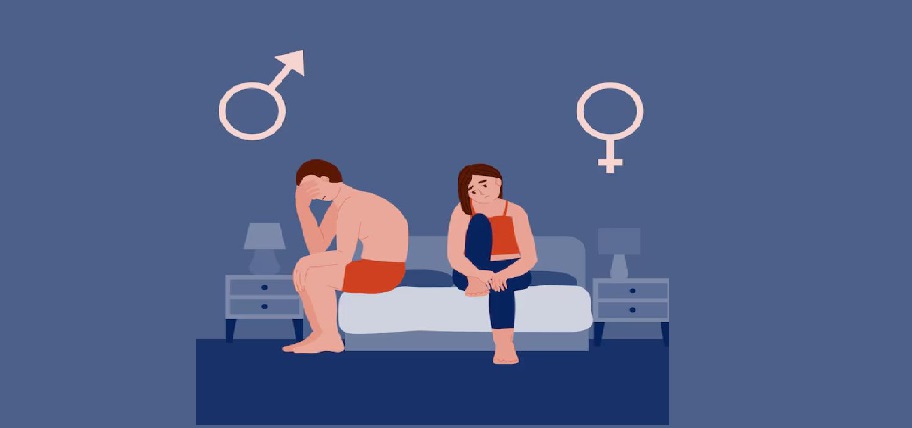
Understanding Sexual Dysfunction: What You Need to Know
Introduction
Have you ever wondered why it’s so difficult to talk about sexual health issues? It’s a topic that many people feel embarrassed or anxious to discuss. However, it’s important to know that you are not alone, and there is no shame in seeking help. Sexual dysfunction is a common issue that can affect anyone, and addressing it openly is the first step towards finding a solution.
Understanding Sexual Dysfunction
Sexual dysfunction refers to persistent problems that prevent individuals from experiencing satisfaction during sexual activity. It can affect both men and women and can manifest in various forms. Understanding these forms is the first step toward addressing the issue effectively.
Forms of Sexual Dysfunction
Erectile Dysfunction (ED): Common in men, ED is the inability to achieve or maintain an erection sufficient for satisfactory sexual performance.
Premature Ejaculation: Another prevalent issue among men, characterised by ejaculation that occurs sooner than desired.
Female Sexual Arousal Disorder: A condition where a woman’s desire for sex and physical arousal are significantly reduced.
Female Orgasmic Disorder: Difficulty in reaching orgasm, despite adequate sexual stimulation and arousal.
Painful Intercourse (Dyspareunia): Experienced by both men and women, it involves pain during or after sex.
Causes of Sexual Dysfunction
Sexual dysfunction can stem from various factors, often interrelated. Recognising these causes helps in addressing the root of the problem rather than just the symptoms.
Physical Causes:
Chronic Illnesses: Conditions such as diabetes, heart disease, and hormonal imbalances can significantly impact sexual function.
Medications: Certain medications, including antidepressants and antihypertensives, can have side effects that impair sexual performance.
Alcohol and Substance Abuse: These can lead to reduced libido and performance issues.
Psychological Causes:
Stress and Anxiety: Everyday stressors and anxiety can take a toll on sexual desire and performance.
Depression: A major depressive disorder can diminish interest in sex.
Past Trauma: Sexual abuse or trauma can have long-lasting effects on sexual health.
Relational Causes:
Communication Issues: Poor communication between partners can lead to misunderstandings and reduced sexual satisfaction.
Unresolved Conflicts: Ongoing conflicts and resentment in a relationship can diminish sexual desire.
Lack of Emotional Intimacy: Emotional disconnect can make physical intimacy challenging.
Symptoms of Sexual Dysfunction
Recognising the symptoms of sexual dysfunction is crucial for timely intervention. These symptoms vary between individuals and genders.
Common Symptoms:
Lack of Sexual Desire: A persistent lack of interest in sexual activity.
Difficulty with Arousal: Trouble becoming physically aroused or maintaining arousal during sex.
Pain During Intercourse: Experiencing discomfort or pain during or after sex.
Inability to Achieve Orgasm: Difficulty or inability to reach orgasm despite adequate stimulation.
Treatment Options
Effective treatment of sexual dysfunction often requires a holistic approach, addressing both physical and psychological factors. Here are some of the available options:
Lifestyle Changes:
Healthy Diet: A balanced diet can improve overall health and, in turn, sexual health.
Regular Exercise: Physical activity enhances blood flow and reduces stress, benefiting sexual function.
Adequate Sleep: Proper rest is essential for hormonal balance and overall well-being.
Medical Treatments:
Medications: Drugs or hormone replacement therapy for hormonal imbalances can be effective.
Medical Devices: Vacuum devices and penile implants can help men with ED.
Therapeutic Options:
Counselling: Psychotherapy or sex therapy can address psychological and relational issues contributing to sexual dysfunction.
Couples Therapy: Working with a therapist can improve communication and resolve conflicts, enhancing emotional intimacy.
The Importance of Seeking Medical Advice
Ignoring sexual dysfunction can strain relationships and impact mental health. It’s essential to seek professional advice if you or your partner are experiencing symptoms.
Impact on Relationships
Sexual dysfunction doesn’t just affect the individual; it can significantly impact relationships. Open communication with your partner is crucial. Addressing the issue together, seeking help, and supporting each other can strengthen the bond and improve overall relationship satisfaction.
Sexual dysfunction is a common issue that can impact anyone, but it’s important to remember that help is available. Open communication, seeking professional advice, and a holistic approach to treatment can empower relationships and improve the overall quality of life. Whether you\'re experiencing sy

Leave a Reply